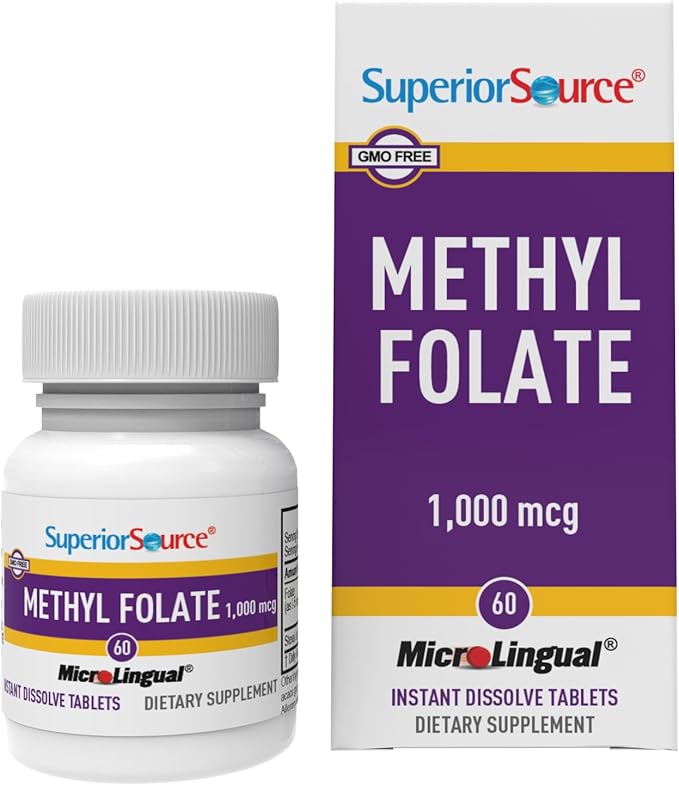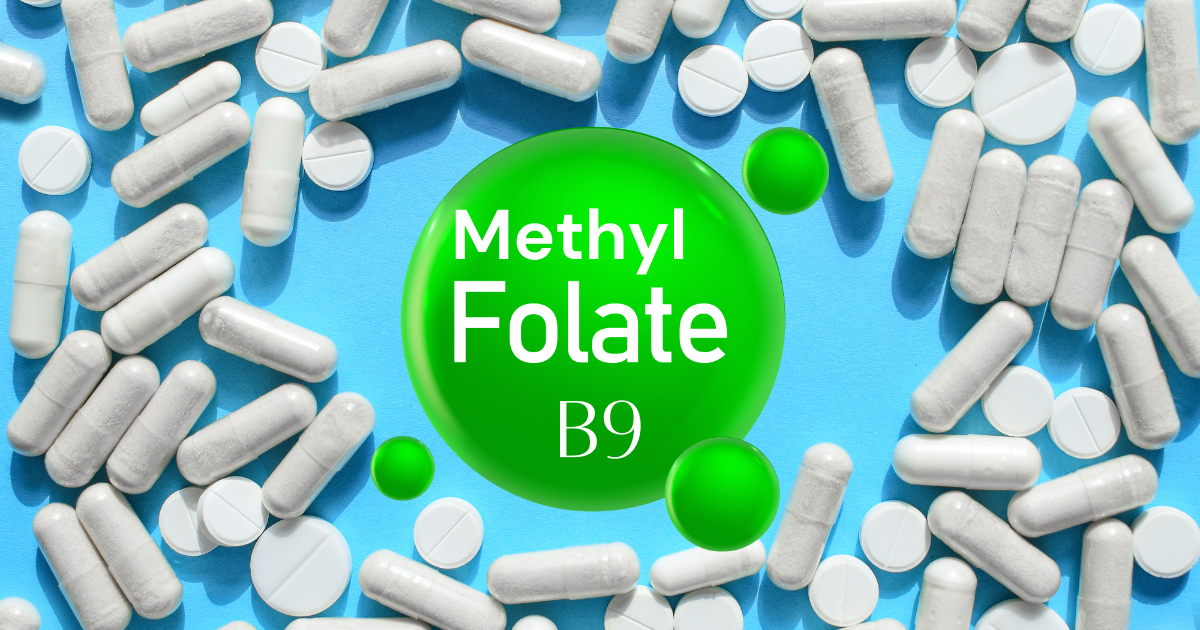“Unveiling the Power of Methyl Folate for Anxiety Relief”
L-Methylfolate: Benefits and Beyond
Table of Contents
- Introduction
- What is L-Methylfolate?
- The Role of L-Methylfolate in the Body
- Benefits of L-Methylfolate
- L-Methylfolate vs Folic Acid
- L-Methylfolate Supplements
- How to Choose the Right L-Methylfolate Supplement
- Potential Side Effects and Precautions
- Conclusion
Introduction
Welcome to weightlossandhealthcare.com, your go-to resource for expert advice and tips on achieving your weight loss goals and improving your overall well-being. In this comprehensive article, we’ll delve into the world of L-Methylfolate and its incredible impact on our health. Whether you’re seeking information about its benefits, supplements, or potential side effects, you’ve come to the right place. Let’s explore the wonders of L-Methylfolate together!
What is L-Methylfolate?
L-Methylfolate, also known as 5-MTHF, is the active form of folate, a type of B vitamin that plays a crucial role in various bodily functions. Unlike folic acid, which needs to be converted into its active form by the body, L-Methylfolate is readily available for use, making it essential for individuals who struggle with folate metabolism.
As a natural form of folate, L-Methylfolate supports key processes such as DNA synthesis, red blood cell production, and neurochemical balance. Its bioavailability and ability to cross the blood-brain barrier make it an invaluable nutrient in maintaining overall health.
The Role of L-Methylfolate in the Body
L-Methylfolate, the active form of folate in the body, plays a crucial role in various physiological functions. Here’s an in-depth look at the multifaceted role of L-Methylfolate:
- Promotes Healthy DNA Synthesis and Cell Division
- Facilitates the production of neurotransmitters, such as serotonin, dopamine, and norepinephrine, which are essential for mood regulation and cognitive function
- Aids in the formation of red blood cells, supporting overall cardiovascular health
- Contributes to the regulation of homocysteine levels, which is crucial for heart health and may reduce the risk of cardiovascular diseases
- Supports cognitive function, mental well-being, and overall brain health
- Plays a key role in fetal development and may reduce the risk of neural tube defects during pregnancy
- May have a positive impact on mood disorders, such as depression and anxiety
- Assists in the metabolism of homocysteine, which is linked to neurological conditions and may contribute to cognitive decline
Benefits of L-Methylfolate
L-Methylfolate offers a wide range of health benefits, making it an essential nutrient for individuals of all ages. Some of the key benefits of L-Methylfolate include:
- Supporting mental wellness and cognitive function
- Promoting cardiovascular health and reducing the risk of heart disease
- Assisting in the management of depression and other mental health conditions
- Supporting fetal development during pregnancy
- Enhancing overall energy levels and combating fatigue
- Improving overall mood and emotional well-being
L-Methylfolate vs Folic Acid
When comparing L-Methylfolate to folic acid, it’s important to understand the unique differences between the two forms of folate. While both are essential for the body, there are distinct advantages of L-Methylfolate over folic acid:
- L-Methylfolate is the active, bioavailable form of folate, whereas folic acid requires conversion by the body
- L-Methylfolate has higher bioavailability and is more readily absorbed compared to folic acid
- Individuals with specific genetic variations may benefit more from L-Methylfolate supplementation
- L-Methylfolate is crucial for supporting mental wellness and may be more effective in managing depression
- L-Methylfolate is a more natural and efficient form of folate, making it a preferred choice for many individuals
L-Methylfolate Supplements
L-Methylfolate supplements are essential for individuals who may have difficulty converting folic acid into its active form. They are available in various forms, including tablets, capsules, and liquid formulations, providing users with options that best suit their preferences and needs.
When considering L-Methylfolate supplementation, it’s crucial to understand the different factors that can affect its effectiveness and absorption. It’s also important to choose a high-quality product that meets your specific needs. Below are some essential considerations to keep in mind:
- Consult a Healthcare Professional: Before starting any supplementation regimen, it’s advisable to consult with a healthcare professional. They can help determine the appropriate dosage and form of L-Methylfolate that aligns with your requirements, ensuring safe and effective supplementation.
- Forms and Dosage: L-Methylfolate supplements are available in various strengths, typically ranging from 1 mg to 15 mg. The appropriate dosage may vary based on factors such as age, health conditions, and specific nutritional needs. Your healthcare provider can guide you in selecting the right dosage and form for optimal benefits.
- Quality Assurance: Opt for products that undergo rigorous testing for purity, potency, and bioavailability. Look for certifications such as Good Manufacturing Practices (GMP) to ensure that the supplement is of high quality and free from contaminants.
- Adherence to Dietary Restrictions: Individuals with dietary restrictions or specific preferences, such as vegetarian or gluten-free diets, should choose supplements that align with their dietary considerations. It’s important to check the product labels for any allergens or ingredients that may be unsuitable for certain dietary requirements.
The right L-Methylfolate supplement can play a significant role in supporting overall health and well-being, addressing potential deficiencies, and promoting optimal physiological functions.
How to Choose the Right L-Methylfolate Supplement
Choosing the right L-Methylfolate supplement is crucial for ensuring its optimal effectiveness and safety. It’s important to consider several factors when selecting an L-Methylfolate supplement to address individual health needs:
- Quality and Purity: Look for supplements that are third-party tested for quality and purity. Ensure that the supplement is free from contaminants and unnecessary additives.
- Form and Dosage Strength: Consider the form of the supplement, such as capsules, tablets, or liquid, and choose a dosage strength that aligns with your healthcare provider’s recommendations.
- Manufacturer’s Reputation: Research the manufacturer’s reputation and read product reviews to gauge the reliability and trustworthiness of the product.
- Specific Dietary Requirements: Take into account any specific dietary requirements, such as gluten-free or vegetarian, when selecting a supplement.
- Healthcare Professional Recommendations: Consult with healthcare professionals to understand their recommendations and guidance on choosing the most suitable L-Methylfolate supplement.
By carefully evaluating these factors, individuals can make well-informed decisions when choosing an L-Methylfolate supplement that best aligns with their health goals and requirements.
Potential Side Effects and Precautions
While L-Methylfolate offers numerous health benefits, it’s important to be aware of potential side effects and precautions associated with its use.
When considering the use of L-Methylfolate, it is important to discuss potential side effects, interactions, and precautions with a healthcare professional.
L-Methylfolate may interact with certain medications, including:
- Antidepressants
- Antiepileptic drugs
- Chemotherapy drugs
- Anti-inflammatory medications
It is essential to inform your healthcare provider about all medications you are taking to ensure there are no adverse interactions with L-Methylfolate.
Some individuals may experience allergic reactions or sensitivities to L-Methylfolate supplements. Symptoms may include:
- Rash
- Itching
- Swelling
If you experience any of these symptoms, discontinue use and seek medical attention.
Taking L-Methylfolate in excessive doses may lead to adverse effects, such as:
- Nausea
- Insomnia
- Irritability
- Digestive issues
It is crucial to follow the recommended dosage and consult a healthcare professional if you have any concerns about the dosage or its effects on your health.
Before integrating L-Methylfolate into your health regimen, consult with a healthcare professional to discuss any potential risks and ensure its compatibility with your health profile.
Conclusion
In conclusion, L-Methylfolate is a vital nutrient with a wide array of benefits for overall health and wellness. Whether you’re seeking to support mental well-being, enhance cardiovascular health, or address specific health concerns, L-Methylfolate can play a valuable role in your wellness journey.
When exploring L-Methylfolate supplementation, always prioritize consultation with qualified healthcare professionals to ensure it aligns with your individual health needs and goals. By incorporating L-Methylfolate into your health regimen under professional guidance, you can experience the exceptional benefits of this essential nutrient.

5 Methyl Folate Statistics:
1. According to a study published in the American Journal of Clinical Nutrition, individuals who have a mutation in the MTHFR gene have a reduced ability to metabolize folate, leading to potential health issues such as neural tube defects in infants.
2. Research from the National Institutes of Health shows that pregnant women who take methyl folate supplements have a significantly lower risk of having a child with autism compared to those who do not supplement with methyl folate.
3. A meta-analysis published in the Journal of Psychopharmacology found that individuals with anxiety/depression who took methyl folate supplements experienced a significant improvement in their symptoms compared to those who did not take the supplements.
4. The Centers for Disease Control and Prevention recommend that women of childbearing age consume 400 micrograms of folate daily to prevent neural tube defects in infants, with methyl folate being the most bioavailable form of folate.
5. A study conducted by the University of Maryland Medical Center found that individuals with a deficiency in methyl folate may be at a higher risk for cardiovascular disease due to impaired homocysteine metabolism.
